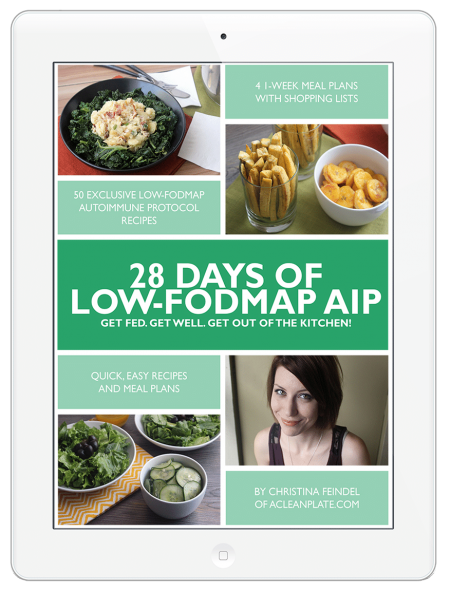How Do I Know if I Have Autoimmune Disease?
If you’ve read my article, “What is Autoimmune Disease?“, the next logical question is “How do I know if I have autoimmune disease?” From the outside, you’d think that was simple: Your doctor would diagnose you with one. But the thing is, most autoimmune diseases can be difficult to diagnose and for those that aren’t, doctors don’t always tell you that the disease is autoimmune in nature. You could go years being treated for arthritis or thyroid disease without ever once hearing the word “autoimmune” from your healthcare professional.
That was the case for me, and I know I’m not alone.
So how do you know? Well, if you’ve already been diagnosed with something, you can look for it on the AARDA’s autoimmune disease list. It’s the most comprehensive collection of known autoimmune diseases I’ve ever seen.
If you haven’t been diagnosed but are wondering if your symptoms might be autoimmune in nature, that’s a whole different can of worms. Really, absolutely any symptom could be traced back to an existing autoimmune disease. There are lists out there with over 300 symptoms of thyroid disease alone. Overwhelming, to say the least!
So, does having a runny nose or PMS mean you have an autoimmune disease? Probably not–if it’s your only symptom. But if you also have headaches, vertigo, and chronic indigestion, that runny nose or PMS may be part of an overall health puzzle that, when pieced together, could spell autoimmunity.
Common Symptoms
- Headaches/Migraines
- Dizziness/Vertigo
- Nausea
- Neuropathy
- Brain Fog/Brain Farts
- Tinnitus
- Depression/Anahedonia/Apathy
- Mood Swings/Hypomania/Manic Depression
- PMS/Cramps
- Absent/Irregular Periods
- Ovarian Cysts/PCOS
- Thyroid Nodules
- Swollen Thyroid/Lymph Nodes
- Joint/Muscle Pain
- Fatigue
- Insomnia
- Indigestion/Bloating/Gas
- Constipation/Diarrhea
- Abdominal Pain
- Vitamin/Mineral Deficiencies
- Inexplicable Weight Loss/Gain
- Inability to Lose/Gain Weight
- Irregular Heartbeat
- High/Low Blood Pressure
- Chest Pain/Costochondritis
- High/Low Body Temperature
- Cold Extremities
- Dry Eyes/Scleritis
- Cracked/Ridged Nails
- Dry/Oily Hair and Skin
- Hair Loss/Thin Eyebrows
- Excess Hair Growth/Facial Hair
- Excess/Inadequate Lubrication (earwax, mucous, discharge, etc.)
- Sexual Dysfunction
- Infertility
- Sensitivity to Light/Sounds/Smells
- Anxiety/Paranoia/Anger
- Slow Wound Healing
- Frequent/Easy Bruising
- Prone to Infections (bacterial, viral, or fungal)
- Systemic Inflammation (rejected piercings/implants, rings gets tighter throughout the day, old injuries flare up frequently)
Take another look at that list and imagine how easy it is to dismiss most of those symptoms as “normal” parts of puberty, aging, or stress. I had symptoms for an entire decade before I realized I was actually sick: It’s easy to attribute headaches to poor sleep, hydration, or stress; to blame a low libido on stress or your partner; to blame allergies for your dry eyes.
So, what do you do if you suspect that you have an autoimmune condition? Maybe you’ve got a family history or maybe there are just no other explanations for your chronic health problems after years of digging.
As I mentioned above, autoimmune disease can be tricky to diagnose. For most, specific antibody blood tests, biopsies, or imaging can confirm your suspicions… but false negatives aren’t unheard of. The sicker you are and the more your body has degenerated, the easier these diseases are to detect. Unfortunately, that means that you’re usually really, really sick by the time your doctor finds them. For me, positive ANAs, TPO Abs, and a brain CT showing inexplicable demyelination were my first clues to start looking for autoimmune disease, and those didn’t show up until ten years after my first symptoms did. And then, even though I had positive antibody tests, it took a year for anyone to diagnose me with Hashimoto’s disease and three years for anyone to figure out I had Celiac disease, too. I knew that I had both of those before any of my doctors would confirm it. For me, it was my own intense research into my symptoms and test results that enabled my diagnoses.
For most of the people I’ve talked to, it’s that combination of luck and perseverance that leads them to an autoimmune diagnosis. Keep seeing doctors. Keep ordering tests. Keep retesting every six months or so. Keep researching, and keep looking for that doctor that will take you seriously. Do an elimination diet and take the best possible care of yourself. It will pay off by managing as many symptoms as possible with or without a diagnosis.
Looking for Low-FODMAP Recipes?
 The low-FODMAP diet is often prescribed for people with IBS or Small Intestinal Bacterial Overgrowth (SIBO), and there’s a huge overlap of that demographic with people with autoimmune disease. My e-book 28 Days of Low-FODMAP AIP combines both IBS- and autoimmune-friendly diets in a 28-day meal plan designed to jump start and simplify this often-challenging diet change. Just you wait: The meal plan includes 50 exclusive low-FODMAP recipes you won’t find on my website or anywhere else, with dishes like Chicken Vindalo, Jambalaya, and crispy, crunchy Tostones. You’ll be amazed at the variety of flavors still available to you! The ebook is available as a digital download for $9.99.
The low-FODMAP diet is often prescribed for people with IBS or Small Intestinal Bacterial Overgrowth (SIBO), and there’s a huge overlap of that demographic with people with autoimmune disease. My e-book 28 Days of Low-FODMAP AIP combines both IBS- and autoimmune-friendly diets in a 28-day meal plan designed to jump start and simplify this often-challenging diet change. Just you wait: The meal plan includes 50 exclusive low-FODMAP recipes you won’t find on my website or anywhere else, with dishes like Chicken Vindalo, Jambalaya, and crispy, crunchy Tostones. You’ll be amazed at the variety of flavors still available to you! The ebook is available as a digital download for $9.99.

